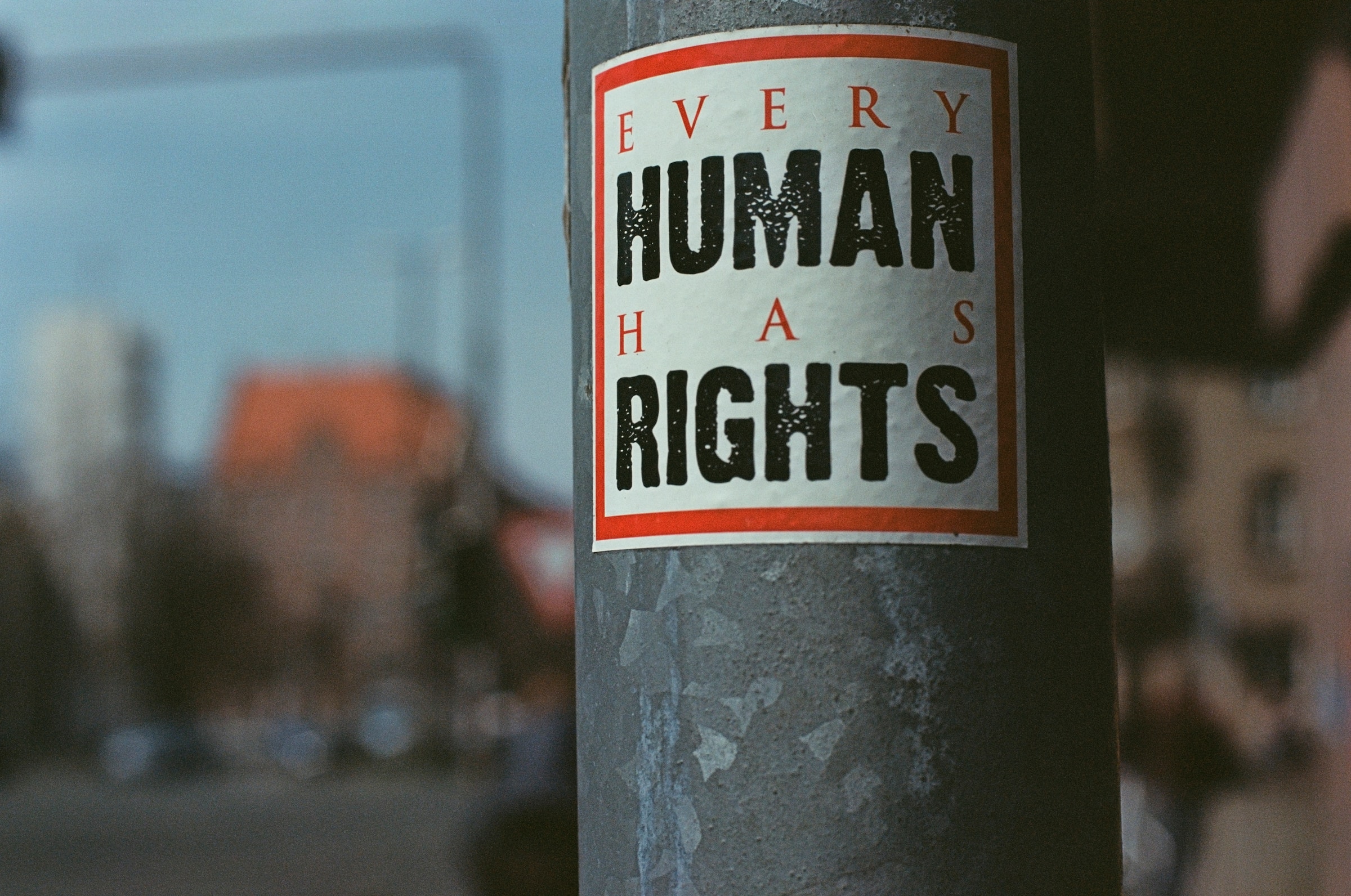We owe statutory, and arguably moral, duties to pay tax but do we also have a taxpaying obligation grounded in the affirmation of human rights?
What is said in the Universal Declaration of Human Rights and others?
Australian diplomats, William Hodgson and Ralph Harry, contributed to the drafting committee for the Universal Declaration of Human Rights 1948, chaired by Eleanor Roosevelt. Numerous drafts of the Universal Declaration were negotiated before the final version, which includes a broadly-worded affirmation of duties, was adopted. Article 29(1) states: ‘Everyone has duties to the community in which alone the free and full development of his personality is possible.’ Hodgson suggested use of the critical word ‘alone’. His proposal was enthusiastically supported by Alexei Pavlov, the Soviet Union delegate, because it ensured that individual rights could not be claimed without recognition of the duties owed to the political community that guaranteed those rights.
Other human rights instruments, notably the Organization of American States’ American Declaration of the Rights and Duties of Man (the American Declaration), list specific duties, including a duty to pay tax, that roughly reciprocate the rights affirmed. The American Declaration, which was concluded eight months before the Universal Declaration, influenced the latter. Both are based on respect for human dignity, and their preambles are virtually the same. Why, then, doesn’t the Universal Declaration also include a specific duty to pay tax?
Bahgat Badawi Bey, the Egyptian delegate, argued that the Universal Declaration should include a list of duties in the way of the American Declaration. While delegates from the liberal democracies opposed a list of specific duties in principle, René Cassin, the influential French delegate, observed, if the drafting committee followed Bey’s proposal, ‘it would become necessary to draft a declaration of duties corresponding to the declaration of rights. It was obviously impossible to complete such a task during the current session.’
Since the American Declaration would have most likely provided a template for a discussion of duties, it would no doubt have been a deeply time-consuming task to craft a list of specific duties that would satisfy the numerous and heterogenous delegates at the Universal Declaration conferences. Johannes Morsink, who has analysed the development of the Universal Declaration in great detail, concludes there ‘was not enough time at the end to expand upon Article 29’.
Modern national constitutions invariably incorporate a charter of rights, typically derived from the Universal Declaration. Protecting and promoting any human right requires government expenditure but satisfying welfare claims are particularly expensive. That is why article 22 of the Universal Declaration limits states’ welfare provision obligations to the organisation and resources of the particular state. Nevertheless, the provision of welfare has become one of the most important functions of modern government, and the most significant item of tax-funded expenditure. Social security and welfare expenditure in 2020–21 represented almost 34% of the Australian Government’s total spending.
Duty to pay tax not explicit in Australian constitution
Roughly 90 national constitutions include an explicit duty to pay tax. Around a quarter of those states specify that tax should be based on ability to pay. Australians indirectly owe a constitutional duty to pay tax since section 5 of the Australian Constitution provides ‘all laws made by the Parliament of the Commonwealth under the Constitution, shall be binding on the courts, judges, and people of every State and of every part of the Commonwealth’. The Constitution does not, of course, specify the principles that should inform federal taxes but ability to pay is a normal and basic tenet of taxation in OECD countries.
Despite not having entrenched, superior human rights-based constitutions, because they have ratified the three fundamental human rights instruments – the Universal Declaration, the International Covenant on Civil and Political Rights (ICCPR) and the International Covenant on Economic, Social and Cultural Rights (ICESCR) – British-heritage common law jurisdictions, including Australia, are considered human rights states.
Human rights states must comply with their international promises on rights, including progressive welfare provision. Their citizens fund these obligations in accordance with their ability to pay, in terms of legislation crafted in accordance with the rule of law. However, while tax equity organisations, such as the Tax Justice Network, demonstrate the necessity of taxpaying for the realisation of human rights, they do not prove a duty to pay tax.
No rights without duties
Article 29 is, perhaps, the least-known provision of the Universal Declaration. It is, however, highly significant because it affirms that we cannot have rights without duties.
Delegates to the drafting conferences for the Universal Declaration were satisfied that a broad statement on duties performed essentially the same function as the detailed duties provisions of the American Declaration. It can be inferred that, having affirmed welfare rights, the delegates would have accepted that a duty to pay tax is implied by article 29. The prosaic story of the drafters running out of time goes some way to explaining why we may not immediately associate human rights claims with a duty to pay tax. Nevertheless, if we claim human rights, we must recognise that such a duty is essential.
This blog post is based on Jonathan M Barrett, ‘Is there a duty to pay tax inherent in universal human rights?’ (2023) 29(3) Washington and Lee Journal of Civil Rights and Social Justice 1.





This is not the theory of Anglo-Australian law. The mediaeval view in England and France was that “the King should live off His own”. His Lords and tenants pay Him rent, not tax. As Maitland observes in his Constitutional History of England, taxation rests on the idea of deemed consent by the Commons on our behalf to give aids or subsidies to the Crown. That view was upheld by Pitt the Elder in his speech to the Lords rejoicing that America had revolted. Without representation there could be no consent to taxation. The French Physiocrats were neo-mediaeval in wanting to restore payment of rent by the nobility in lieu of oppressive taxation to fund the French Crown. They, Adam Smith, James and John Stuart Mill and Henry George were correct in recognising that a tax on rent was really not a tax at all but a reappropriation of rent by the Crown – and a price, not a tax. The beauty of the “impot unique” is that it creates no dead weight loss, unlike taxes on labour or capital. Arab oil States now recognise this idea of the Sovereign living off His rents now better than we do – the whole history of taxation is one of landholders throwing the burden of financing government onto labour and capital – the latter eventually flees while the former stops breeding new taxpayers.
Hello Terry
I find this information very interesting. I occasionally venture into the field of older tax history, and will certainly take your comments on board when I do in the future.
In the blog and more extensive analysis in the W&L journal, I was looking at the fundamental ethics of human rights.
Thanak you for reading
Regards
Jonathan
Yes, it is very interesting. At a very deep level, the Coronation ceremony brings it out in showing the King is under God and bound by Law. That is why the King thanks his subjects in Norman French for their benevolences when the Bill is passed granting Supply to the Crown. Taxes are a voluntary gift by common consent from us to the Crown. The Crown does not own us or ours. We are not slaves to the King or the mob. Vox populi, vox Dei is not part of our legal tradition and human rights are seen as coming from God, not the State, as reflected in the US Declaration of Independence that “All men are endowed by the Creator with certain unalienable Rights…” Churchill and others recognised that war against Hitler was a war against any concept of totalitarianism. One of my uncles went to a Nazi rally in the 1930s when visiting Germany, turned to his brother and said there would be war in five years. He volunteered the day after war was declared in Europe at night on 3 September 1939. The letter he wrote that night was a very eloquent expression of the philosophy of human rights and the dignity of free men made as such by God versus the monstrous tyranny of an all-powerful State.